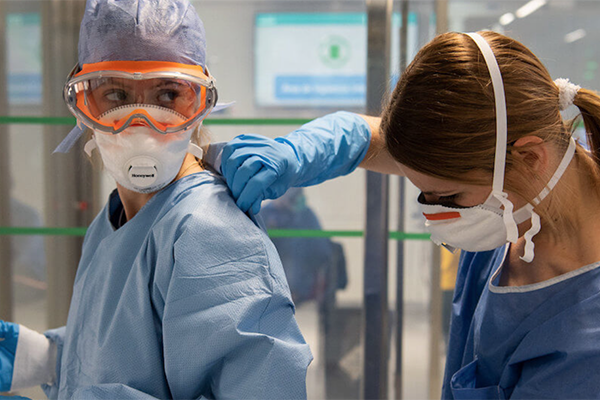Those Nerdy Girls of Dear Pandemic have spent the last 15 months sharing science-backed info with their 100,000 followers. They have some advice for how to get us through this next wave.
By Roxanne Patel Shepalavy
The Philadelphia Citizen
August 12, 2021
Back in the early days of the pandemic—before vaccines, and opening back up and variants—the women scientists answering questions for “ Dear Pandemic,” a Facebook group and blog that launched last spring to provide science-backed Covid-19 information—were in crisis communications mode. Everyone wanted to know everything about the virus immediately; every question and answer had implications that could save lives right now; and everyone was focused on finding the best way to get through this moment, to the other side of all this.
And for a little while this summer, we seemed to get there, that crisis mode seemed to abate, and the dozen or so doctors, nurses and researchers from Philadelphia and around the world who run Dear Pandemic had started to slow down and focus on other issues, like Lyme disease and science literacy. “We were getting ready for more non-Covid content, with the hope this would not be the first thing on anyone’s mind,” says Ashley Z. Ritter, PhD/CRNP and CEO of Dear Pandemic. “You can’t do crisis communication on an ongoing basis without getting tired.”
You can guess how that has played out.
The Covid Delta variant has taken hold and the virus is again raging nationwide (though less so here in Philadelphia), in no small part because so many Americans are unvaccinated—including those who can, but are choosing not to. Politics is part of that. So, too, is misinformation, fear, confusion and a loose understanding of science and how it really works.
“Science is not a fixed body,” Ritter notes. “It changes all the time. People have a hard time with that.”
Dear Pandemic launched last May after Ritter realized social media—where more than 50 percent of Americans get some or all of their news—was full of misleading information about the brand new pandemic we faced. A geriatric nurse practitioner in Philly, Ritter joined with Alison Buttenheim, a Penn behavioral scientist who specializes in infectious disease prevention and whose tweets shared the best science-backed information out there at the time. They soon recruited a team of more than 25 volunteer scientists around the country and world, and dubbed themselves “Those Nerdy Girls.”
